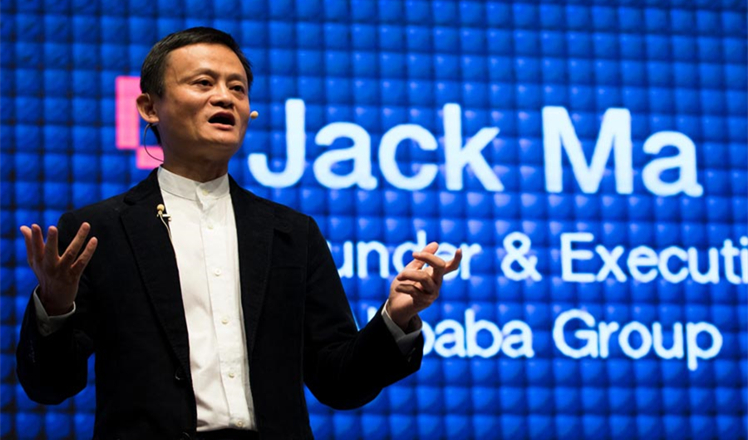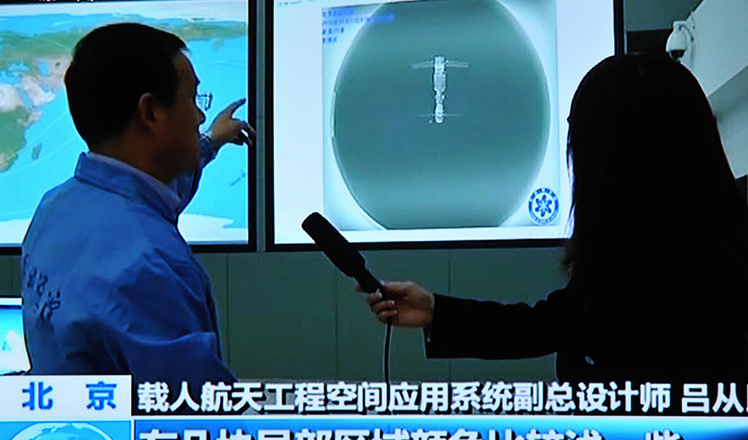Apple sees continued sales decline in China
Updated: 2016-10-26 10:43
By Agencies and Heng Weili in New York(China Daily USA)
|
||||||||
Apple's sales in China are continuing their slide, according to the iPhone maker's quarterly earnings release on Tuesday.
Revenue from Greater China, once seen as Apple's next growth engine, fell 29.8 percent in the quarter after dropping 33 percent in the preceding period. Revenue from Greater China had doubled in the year-earlier quarter.
The Cupertino, California tech giant reported that its overall revenue declined 9 percent to $46.8 billion for the quarter that ended last month. Profit fell 19 percent to $9 billion.
Still, Apple sold 45.51 million iPhones in its fiscal fourth quarter ended Sept 24, beating the average analysts' estimate of 44.8 million, according to FactSet StreetAccount.
It was the third quarter in a row, however, of falling iPhone sales.
Apple shares were down 2.1 percent at $115.75 in after-hours trading on Tuesday. The stock hit a 12-month low of $89.47 in May but has been rising since as investor confidence returned.
Apple forecast revenue of between $76 billion and $78 billion for the current quarter. Analysts, on average, had expected $75.08 billion, according to Thomson Reuters I/B/E/S.
That meant annual revenue fell for the first time since 2001, highlighting the slowdown in the smartphone market as well as intensifying competition, particularly from Chinese rivals such as Xiaomi and Huawei.
Analysts had expected revenue of $46.94 billion in the quarter, according to Thomson Reuters I/B/E/S.
Apple's net income fell to $9.01 billion, or $1.67 per share from $11.12 billion, or $1.96 per share, a year earlier. That beat the average estimate of $1.66 per share.
Meanwhile in Beijing, Xiaomi unveiled the Mi Note 2, sporting a curved screen similar to Samsung's Galaxy Edge. It sells for as much as 3,499 yuan ($516), co-founder Lei Jun said on Tuesday.
Xiaomi also showed off the Mi MIX concept phone developed with designer Philippe Starck, featuring a ceramic body and bezel-less screen for as much as 3,999 yuan.
Still, after blazing its way to the top of China's smartphone market, Xiaomi has struggled to maintain its stunning growth and fallen to No. 4 as rival brands Huawei, Oppo and Vivo captured swathes of the market.
Between July and September, Oppo had 16.6 percent of the market, just past Vivo's 16.2 percent, according to cnet.com. As recently as the third quarter of 2015, both brands had market shares under 10 percent.
Huawei is now No. 3 with 15 percent and Xiaomi dropped to a 10.6 percent share, down from 14.6 percent from the year-ago period.
- Russian, German FMs discuss Syrian situation
- Workers wield sledgehammers to tear down Calais 'Jungle'
- Panda-themed contest held to mark Belgium-China ties
- Morocco highly guarded to secure upcoming COP22
- Lavrov, Kerry discuss Syrian situation
- Turkish troops kill 17 IS militants since Mosul operation: FM

 Tibet mandala: The world in a grain of sand
Tibet mandala: The world in a grain of sand
 Top 10 Chinese tycoons in IT industry
Top 10 Chinese tycoons in IT industry
 Planes ready to take off at Airshow China
Planes ready to take off at Airshow China
 Teacher's spirit keeps village school open
Teacher's spirit keeps village school open
 A sweet wedding worth waiting for
A sweet wedding worth waiting for
 Top 5 property destinations for Chinese investors
Top 5 property destinations for Chinese investors
 Accompanying satellite sends back images of Tiangong II, Shenzhou XI
Accompanying satellite sends back images of Tiangong II, Shenzhou XI
 Dare you jump
Dare you jump
Most Viewed
Editor's Picks

|

|

|

|

|

|
Today's Top News
'Zero Hunger Run' held in Rome
Trump outlines anti-terror plan, proposing extreme vetting for immigrants
Phelps puts spotlight on cupping
US launches airstrikes against IS targets in Libya's Sirte
Ministry slams US-Korean THAAD deployment
Two police officers shot at protest in Dallas
Abe's blame game reveals his policies failing to get results
Ending wildlife trafficking must be policy priority in Asia
US Weekly

|

|









